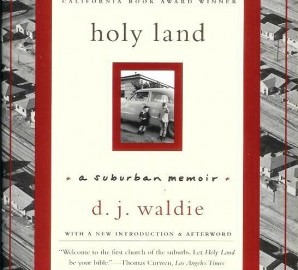Climate change and other pressures threaten the endangered dwarf trout lily. Some have suggested that the plant might be preserved through “assisted colonization”–introducing the plant into a more protected area like the Cowling Arboretum. Students in Kim Smith’s Fall 2014 Environmental Ethics course evaluate the ethical dimensions of this idea and offer a recommendation.
Category Archives: Focus: Land
Humane Pork Sourcing at Carleton College
Students in Kim Smith’s Fall 2014 Environmental Ethics analyze Carleton College’s guidelines for sourcing it pork products. It considers whether the College’s practices meet ethical environmental and animal welfare standards, and how better to achieve ethical standards in pork consumption.
What is the Ethical Value of Carleton College’s Japanese Garden?
Do gardens teach important environmental values, or do they represent human domination of nature? Does a Japanese garden serve the environmental and liberal arts mission of Carleton College? Students in Kim Smith’s 2014 Environmental Ethics course consider these questions in their ethical analysis of the Carleton College Japanese garden.
Carbon Sequestration in Soils at Carleton College: Current Practices and Future Recommendations
Students in Mary Savina’s Fall 2014 Geology of Soils class provide an assessment of the potential impact that carbon sequestration by soils at Carleton could have by presenting Geographic Information Systems (GIS) data on the area of campus that could be converted to a groundcover that would maximize carbon sequestration by soil.
SERC InTeGrate Project
The Science Education Resource Center (SERC) works to improve education through projects that support educators. InTeGrate is a specific SERC project funded by a 5-year STEP Center grant from the National Science Foundation. The program supports the teaching of geoscience in the context of societal issues both within geoscience courses and across the undergraduate curriculum. Our goal is to develop a citizenry and workforce that can address environmental and resource issues facing our society.
Northfield Energy Task Force
The Northfield Energy Task Force (NETF) was created by resolution of the Northfield City Council in May 2007 to respond to challenges presented by reliance on fossil fuels and climate change. Their report, “With Hope: A Resilient Community” was presented to the City Council in May 2008, but follow-up was limited due to other political priorities at the time.
Contact: George Kinney, geokinney@gmail.com
Study of Agricultural Tillage Practices
Description: Undergraduate collaborators work directly with faculty, the CRWP, and area farmers to examine the effects of different agricultural practices on soil quality and agricultural yields. Past research has examined water runoff and the diversity of invertebrate soil fauna associated with different tillage methods, especially no-till and strip-till. Lands owned by farmer participants as well as St. Olaf College are used as field sites. In additional a special project examined tillage practices and carbon sequestration with the possibility of local carbon offsets. Recent research has focused on exploring how differences in applied nitrogen fertilizer translate into soil nitrogen levels, stalk nitrate levels, and product yield. Additionally, research work focuses on general indicators of soil quality including moisture levels, compaction, organic carbon and nutrients, including nitrogen and phosphorous.
Participants:
- David Legvold, farmer
- Gene Bakko, St. Olaf College (retired)
- Kathleen Shea, St. Olaf College
- Megan Gregory ‘04, St. Olaf College
Contact: Kathy Shea, Curator of Natural Lands, Biology & Environmental Studies Departments, St. Olaf College (sheak@stolaf.edu, 507-786-3396)
Northfield Greenway Corridor Plan
Northfield’s Greenway Corridor Plan (adopted 2007) identifies a connected system of protected natural areas and cultural resources and proposes action.
Northfield Parks, Open Spaces and Trail Systems Plan
The Northfield Parks, Open Spaces and Trail Systems Plan highlights open spaces reserved for recreation and conservation purposes.

Book Reading – “Holy Land: A Suburban Memoir”
D.J. Waldie will read from his first book, “Holy Land: A Suburban Memoir” on life in the 1950s in Lakewood, California’s largest planned suburb. Sponsored by Carleton College Environmental Studies and English Departments.